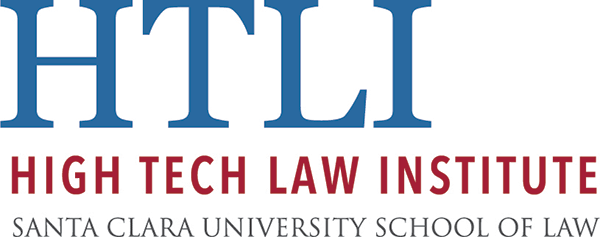Prof. Colleen Chien; Santa Clara Law Students, Wes Helmholtz (’13), Coryn Millslagle, John Neal and Nicole Shanahan; and others recently posted their survey findings in “Santa Clara Law Best Practices in Patent Ligiation Survey” on SSRN.
“The Santa Clara Law Best Practices in Patent Litigation Survey” was developed to support the important dialog between the patent bench, bar and lawmakers, in their efforts to improve patent law and litigation practice. Professor Chien and her collaborators developed, in consultation with judges and company lawyers in spring of 2013, a list of questions to probe the experiences, opinions, and suggestions of lawyers. The survey takers were asked to rate, on a range from ineffective to very effective, certain existing and proposed practices and interventions, and converted these scores into numerical ratings (of up to a highest possible effectiveness score of 100%). Based on over 500 responses, about a quarter from in-house counsel mostly at large technology companies and the remainder from outside (law firm) counsel, the authors probed a number of topics, and made a number of findings, as described in the abstract:
“For example, the highest rated intervention of any was timely decisions on summary judgment motions (85%) followed by timely decisions on transfer motions (72%). Early claim construction also rated highly (around 68%). Among recent reforms, the FCAC e-Discovery model order ranked the highest in effectiveness (43%). However commentators said of many recent reforms that too much variance in court uptake and implementations, due to the discretion given to judges, undermined their effectiveness.
Among proposed legislative reforms, fee-shifting and sanctions for prevailing parties and for discovery abuses rated most favorably (~65%). Based on about one hundred outside counsel responses, discovery abuses, followed by frivolous claims/defenses, were in the greatest need of sanction or shifting. Respondents also identified abuses that tended to be particular to plaintiffs: evasive discovery responses, overly burdensome or excessive discovery requests, frivolous/meritless claims, and unreasonable claim construction positions; as well as to defendants: stalling or failing to provide requested information, hiding non-infringement positions, and unreasonably delaying or asking for late trial dates.
We asked about the contexts of patent litigation – 86% of in-house counsel reported that their company’s customers had received PAE demands based on the use or implementation or the company’s products. There was a split in responses about monetization of patents– slightly more than half of in-house respondents indicated that their company had not experienced greater pressure to monetize, while slightly less than half indicated that their company had either monetized (23%) or were thinking of doing so (28%).”
The initial findings of the report were presented by Prof. Chien and Wes Helmholtz at the Federal Circuit Bar’s Advanced Complex Litigation Series hosted at Santa Clara Law in May of 2013.

Leave a Reply